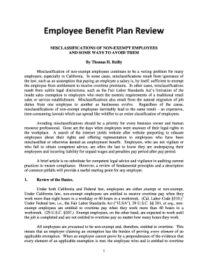
Bookkeeping is the process of keeping track of a business’s financial transactions. These services include recording what money comes into and flows out of a business, such as payments from customers and payments made to vendors. While bookkeepers used to keep track of this information in physical books, much of the process is now done on digital software.
- The year-end reports prepared by the accountant have to adhere to the standards established by the Financial Accounting Standards Board (FASB).
- A small business can likely do all its own bookkeeping using accounting software.
- The cost of accounting and bookkeeping services can vary widely depending on your location.
- You may be hoping for the best and have a few college courses in your back pocket.
Double-entry accounting enters every transaction twice as both a debit and a credit. Your business’s books are balanced when all of the debits equal (or cancel out) all of the credits. And since it takes equity, assets and liabilities — on top of expenses and income — into account, it typically gives you a more accurate financial snapshot of your business. Bookkeeping is the process of recording all financial transactions made by a business. Bookkeepers are responsible for recording, classifying, and organizing every financial transaction that is made through the course of business operations.
With an accurate record of all transactions, you can easily discover any discrepancies between financial statements and what’s been recorded. This will allow you to quickly catch any errors that could become an issue down the road. Because bookkeeping involves the creation of financial reports, you will have access to information that provides accurate indicators of measurable success. By having access to this data, businesses of all sizes and ages can make strategic plans and develop realistic objectives. By logging and keeping track of all financial transactions, you will have easy access to any financial information you might need.
Write a business plan
Companies often outsource the organization of their finances to independent professionals, then hire accountants for more complex issues and tax filing. Bookkeeping is the practice of organizing, classifying and maintaining a business’s financial records. It involves recording transactions and storing financial documentation to manage the overall financial health of an organization. Most businesses use an electronic method for their bookkeeping, whether it’s a simple spreadsheet or more advanced, specialized software.
Rarely does a bookkeeper work on one big project for an eight-hour shift; instead, a typical workday involves juggling five or six smaller jobs. Nearly all bookkeeping is done using computerized accounting software and programs, so bookkeepers should be comfortable learning new technology if not proficient in it. However, bookkeeping and accounting clerk jobs are expected to decline, with the BLS projecting a 5% fall in jobs over the same period. The BLS notes that job growth for accountants should track fairly closely with the broader economy. However, bookkeepers will face pressure from automation and technology that will reduce the demand for such workers. With bookkeepers, there are a lot of minutiae involved, and keen attention to detail is paramount.
Bookkeeping 101: Bookkeeping Basics for Small Businesses
In most carbon accounting systems, emissions of all GHGs are measured by carbon dioxide equivalent, or CO2e. Department of Labor’s Occupational Handbook, some of the most in-demand accounting jobs include comptroller, accounting manager, senior tax accountant, and internal auditors. For a long-term career, accounting offers much more upward mobility and income potential.

Becoming an accountant usually requires more training and education than bookkeeping but can be a good next step in your financial career. Entries in bookkeeping are recorded in the archaic method of journal entry. Here, the respective individual or accountant manually enters the account numbers and performs individual action of debits and credits for each transaction. This approach is time-consuming and subject to error, and so is usually reserved for adjustments and special entries. The cash-based system of accounting records financial transactions when payment is made or received. This system recognizes revenue or income in the accounting period in which it is received and expenses in the period in which they are paid.
What is bookkeeping?
It is a foundational accounting process, and developing strategies to improve core areas of your business would be nearly impossible without it. Yet as important as bookkeeping is, implementing the wrong system for your company can cause challenges. Some companies can still use manual methods with physical diaries and paper journals. However, as technology gets more and more advanced, even smaller companies could get benefits from going digital. It provides quicker and easier solutions for cash management, accounts payable/receivable, bank reconciliation, and generating financial statements. Further, its built-in automation takes care of mundane accounting tasks and helps you focus more on your business.
There are several standard methods of bookkeeping, including the single-entry and double-entry bookkeeping systems. While these may be viewed as “real” bookkeeping, any process for recording financial transactions is a bookkeeping process. The next, and probably the most important, step in bookkeeping is to generate financial statements. These statements are prepared by consolidating information from the entries you have recorded on a day-to-day basis. They provide insight into your company’s performance over time, revealing the areas you need to improve on.
The Role of an Accountant in Supply Chains Management
One way to think about it is that bookkeepers lay the groundwork for accountants to analyze and prepare financial statements. On the other hand, accounting comprises a wider variety of operations related to financial management. It entails analysing, interpreting, and summarising the financial data that bookkeepers have recorded in the books. Accountants make use of this information in order to offer business owners and those in charge of decision-making important insights and strategic recommendations. Their knowledge is vital for ensuring that one may make well-informed judgements regarding one’s finances and remain in accordance with applicable tax legislation. Accountants, on the other hand, use the information provided by bookkeepers to summarize a business’s financial position and render financial advice to the business owner.
It is the place where a business chronologically records its transactions for the first time. A journal can be either physical (in the form of a book or diary), or digital (stored as spreadsheets, or data in accounting software). It specifies the date of each transaction, the accounts credited or debited, and the amount involved. While the journal is not usually checked for balance at the end of the fiscal year, each journal entry affects the ledger. As we’ll learn, it is imperative that the ledger is balanced, so keeping an accurate journal is a good habit to keep.
Other smaller firms may require reports only at the end of the year in preparation for doing taxes. Accountants typically have at least a bachelor’s degree in accounting, and many go on to become certified public accountants (CPAs) or certified management accountants (CMAs). Bookkeepers might also have degrees in accounting, but most have either technical certifications or on-the-job experience. Often, office management tasks like customer billing, paying vendors and payroll are considered to be bookkeeping tasks. Although accounts receivable, accounts payable and payroll do impact your books, some of these tasks can be managed by a person in your company other than your bookkeeper. Others, like payroll, can be outsourced to independent companies that specialize in the task.
Bookkeeping involves the recording, on a regular basis, of a company’s financial transactions. With proper bookkeeping, companies are able to track all information on its books to make key operating, investing, and financing decisions. Recording transactions begins with source documents like purchase and sales orders, bills, invoices, and cash register tapes. Once you gather these documents, you can record the transactions using journals, ledgers, and the trial balance. The information can then be consolidated and turned into financial statements.
CLA Accounting Firm Acquires Frost & Co. News 425business.com – 425business.com
CLA Accounting Firm Acquires Frost & Co. News 425business.com.
Posted: Tue, 01 Aug 2023 18:36:00 GMT [source]
Since the principles of accounting rely on accurate and thorough records, bookkeeping is the foundation accounting. Bookkeepers often times has to exercise analytical skills and judgment calls when recording business events since source for most accounting information in the system. As an accountant, you must pay attention to figures and financial details, but it is more essential what is a contra account the motley fool to possess sharp logic skills and big-picture problem-solving abilities. While bookkeepers make sure the small pieces fit correctly into place, accountants use those small pieces to draw much more significant and broader conclusions about a company’s finances. Bookkeeping services also tend to be ongoing, so consider offering discounts for clients who pay by the year.
However, activity-based methods are generally regarded as more accurate than spend-based methods. Having a clean, modern website will empower you to showcase your services. There are many great website builders available to help you design a website as unique as your business. Next, you’ll need to invest in professional liability insurance, which protects you in the event you make an error in managing a client’s books. You might also consider general liability insurance coverage to protect against a broad range of risks. And if you hire employees, you’ll also need to invest in worker’s compensation insurance.
Both a cash and accrual basis can work with single- or double-entry bookkeeping. In general however, the single-entry method is the foundation for cash-based bookkeeping. Transactions are recorded as single entries which are either cash coming in or going out. Bookkeepers may start working for a small business to gain experience and then go back to school for a degree in accounting or finance. Enrolling in one of the best online bookkeeping classes is a smart way for those interested in this career to bolster their existing financial knowledge. As a business owner, you’ll find that life is only as easy as the tools you use.
- Once you gather these documents, you can record the transactions using journals, ledgers, and the trial balance.
- Owners of the business have claims against the remaining assets (equity).
- If you find that you have a talent for and enjoy the process, you may consider starting your own bookkeeping business providing this service to others.
- It entails analysing, interpreting, and summarising the financial data that bookkeepers have recorded in the books.
- Bookkeepers might also have degrees in accounting, but most have either technical certifications or on-the-job experience.
Generally, bookkeepers focus on administrative tasks, such as completing payroll and recording incoming and outgoing finances. Accountants help businesses understand the bigger picture of their financial situation. Double-entry bookkeeping is the practice of recording transactions in at least two accounts, as a debit or credit. When following this method of bookkeeping, the amounts of debits recorded must match the amounts of credits recorded. This more advanced process is ideal for enterprises with accrued expenses.
To make it even easier, bookkeepers often group transactions into categories. Without bookkeeping, accountants would be unable to successfully provide business owners with the insight they need to make informed financial decisions. Start by deciding on the system you want to use, whether it’s an online program, paid software or a spreadsheet. Next, set aside a dedicated time either weekly or biweekly to review your bookkeeping, reconcile transactions and complete necessary data entry. Finally, you’ll want to decide how all receipts and documents will be stored.
Bookkeeping is a process of recording and organizing all the business transactions that have occurred in the course of the business. Bookkeeping is an integral part of accounting and largely focuses on recording day-to-day financial transaction of the business. The income statement, also called the profit and loss statement, focuses on the revenue gained and expenses incurred by a business over time. The upper half lists operating income while the lower half lists expenditures. The statement tracks these over a period, such as the last quarter of the fiscal year. It shows how the net revenue of your business is converted into net earnings which result in either profit or loss.
